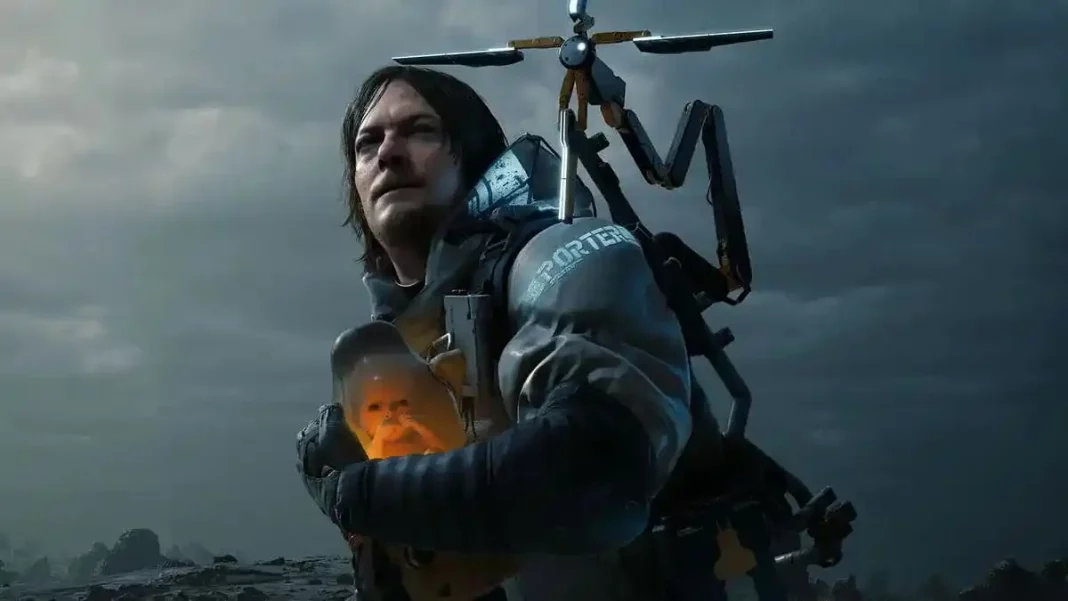Hideo Kojima’s Death Stranding, released in 2019, was a groundbreaking and polarizing game that captivated players with its enigmatic narrative, stunning visuals, and unique gameplay mechanics. Set in a post-apocalyptic world, Death Stranding took players on a journey to reconnect fractured societies, exploring themes of isolation, connection, and the human condition. With the game’s ambiguous ending and the vast potential for further exploration, fans eagerly anticipate the possibility of a Death Stranding 2. In this article, we will delve into the potential of a sequel, examining the themes, improvements, and impact it could have on the gaming landscape.
Death Stranding 2 would provide an opportunity to continue the mysterious and thought-provoking narrative that enthralled players in the original game. The sequel could explore new storylines, expand upon existing characters, and introduce new elements to the ever-evolving world. The enigmatic nature of Death Stranding leaves ample room for exploration and interpretation, allowing the sequel to delve deeper into the lore and the mysteries that still remain unanswered.
Death Stranding introduced unique gameplay mechanics that challenged players to navigate treacherous terrain, manage resources, and forge connections with other players in an asynchronous multiplayer experience. A sequel could build upon these mechanics, refining and expanding them to offer even more engaging and immersive gameplay. New features, such as additional tools, upgraded traversal mechanics, and expanded cooperative elements, could enhance the gameplay experience and further immerse players in the world of Death Stranding.
The world of Death Stranding is vast and filled with breathtaking landscapes, haunting atmospheres, and rich lore. A sequel could expand upon this world, introducing new regions, environments, and challenges for players to explore. The addition of diverse landscapes, from dense forests to sprawling urban areas, would provide a fresh and visually captivating experience. The expanded world could also offer new encounters with unique characters and factions, further enriching the narrative and the player’s understanding of the game’s universe.
Death Stranding delved into profound themes of connectivity, existentialism, and the impact of human actions on the environment. A sequel could continue to explore these themes, delving even deeper into the philosophical questions raised by the original game. It could provide players with further opportunities to reflect on the nature of existence, the importance of human connection, and the consequences of our choices. By continuing to tackle these thought-provoking themes, Death Stranding 2 could offer players a unique and intellectually stimulating experience.
With the passage of time, technology continues to advance at a rapid pace. A sequel to Death Stranding would have the advantage of leveraging these advancements to create an even more visually stunning and immersive experience. The improved graphical capabilities of modern gaming systems could be utilized to create more detailed environments, lifelike character models, and dynamic weather systems. Additionally, advancements in audio technology could further enhance the atmospheric and immersive nature of the game.
Death Stranding made a significant impact on the gaming landscape, pushing the boundaries of storytelling, gameplay, and artistic expression. A sequel would likely have a similar impact, continuing to challenge traditional game design and narrative conventions. Death Stranding 2 could inspire other developers to experiment with unconventional gameplay mechanics, tackle complex themes, and create thought-provoking narratives. It has the potential to leave a lasting impact on the industry, shaping the direction of future games and encouraging a broader exploration of the medium’s artistic potential.
One of the standout features of Death Stranding was its asynchronous multiplayer component, which allowed players to leave helpful structures and messages for others. A sequel could build upon this community-driven aspect, fostering an even stronger sense of connection and collaboration among players. The cooperative elements could be expanded, allowing players to work together on larger-scale projects or engage in shared objectives, further emphasizing the game’s themes of unity and connectivity.
Death Stranding 2 holds immense potential to further explore the enigmatic world and thought-provoking themes introduced in the original game. With the opportunity to evolve gameplay mechanics, expand the world, and continue the narrative journey, the sequel could captivate players and immerse them in a unique and intellectually stimulating experience. Death Stranding’s impact on the gaming landscape has been significant, and a sequel could continue to push boundaries, challenging traditional game design and narrative conventions. As fans eagerly await news of a potential Death Stranding 2, the possibilities of further exploration and connection in this post-apocalyptic world are as intriguing as they are mysterious.





